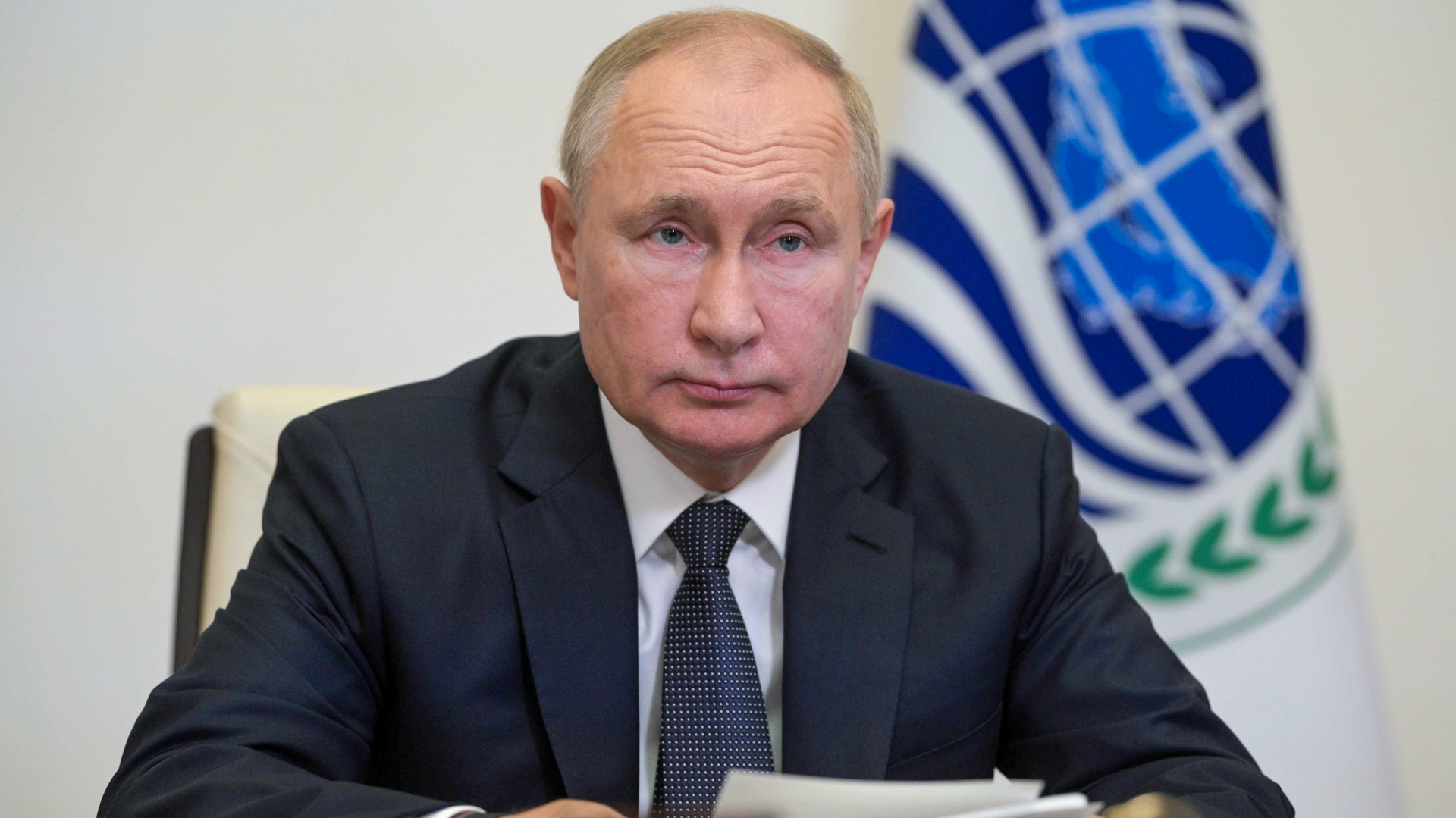During the coronavirus pandemic, Russia allocated about 3 trillion rubles for anti-crisis measures.
This was announced on Friday, September 17, by the country's President Vladimir Putin during a videoconference speech at the summit of the Shanghai Cooperation Organization (SCO).
“To preserve jobs and incomes of citizens, support entrepreneurship, restart the investment cycle, help regions, specific people and families with children, first of all,” the head of state said.
According to him, in comparative terms, the total amount of funds allocated to combat the consequences of the pandemic exceeds 4.5% of Russia's GDP.
Recall that in 2020, the authorities began to provide direct payments to families with children, subsidies to the most affected sectors of the economy, as well as grants and soft loans to enterprises to pay salaries to employees.
In addition, the government has agreed on tax deferrals and exemptions for companies and entrepreneurs.
At the same time, the state launched a program of preferential mortgages and cashback for trips across Russia.
The actions of the authorities made it possible to almost halve the rate of economic decline in 2020.
This was announced in February by the head of the Ministry of Economic Development Maxim Reshetnikov.
Thus, according to him, without anti-crisis measures, the country's GDP could have decreased by more than 5.5%.
Meanwhile, according to Rosstat estimates, the volume of Russia's gross domestic product at the end of 2020 decreased by only 3%.
Moreover, for the first time in the entire post-Soviet period, Russia has weathered the global crisis better than the world as a whole.
So, according to the International Monetary Fund, in 2020 the overall fall of the global economy turned out to be deeper and amounted to 3.3%.
“Even in conditions of economic uncertainty and quarantine restrictions, there was no serious shortage of goods and food in Russia.
At the same time, most enterprises opened after easing the restrictions and were able to switch to a new format of work, "Pavel Sigal, first vice president of the all-Russian public organization of small and medium-sized businesses" Support of Russia, "said in an interview with RT.
Without concessional loans, businesses would have to reduce part of the workforce, which could lead to a massive increase in unemployment and a more serious decline in GDP.
This point of view in a conversation with RT was expressed by Georgy Ostapkovich, director of the Center for Market Research at the Institute for Statistical Studies and Economics of Knowledge at the Higher School of Economics.
Also, according to him, direct payments to needy Russians and families with children allowed to stimulate consumer demand.
“It should be noted that the allocated 3 trillion rubles is, most likely, direct assistance to the population and business.
Meanwhile, another 1.8 trillion rubles went to indirect support of enterprises.
Entrepreneurs were exempted from some taxes, a moratorium on bankruptcy was imposed - the government also spent money on all this, ”added Ostapkovich.
globallookpress.com
© Jim West
In 2021, the authorities continued to provide support to companies and Russians.
In particular, the government launched a new stage of the program of concessional loans to businesses, and also extended the moratorium on inspections of small and medium-sized enterprises.
“Families, in turn, received school payments for their children.
Also, payments were made to pensioners and military personnel.
More than 700 thousand Russians took advantage of the benefits that are due to parents from single-parent families.
All these measures allow maintaining consumer demand at the pre-crisis level, ”added Pavel Sigal.
According to the Central Bank, Russia's economy has already returned to pre-pandemic levels.
Moreover, according to the July forecast of the Central Bank, in 2021 the country's GDP may grow by 4-4.5%.
Georgy Ostapkovich adheres to a similar assessment.
“Now the new support measures have changed their character.
The government is gradually moving away from the crisis model and begins to creep into the further development of the economy.
Such a scenario will help bring the economy into a stabilization phase, and this year we will not only recover from last year's losses, but also grow in relation to the level of the pre-crisis 2019, ”the specialist noted.
Digital transition
According to Vladimir Putin, digitalization and wider use of environmentally friendly technologies will become a key tool for further stimulating economic growth.
The President spoke about the need to use innovative solutions in all spheres of life, including public administration, transport and communications.
“On all these topics, the SCO member states have established cooperation, and it needs to be vigorously developed.
The SCO Green Belt program approved by us today, as well as an action plan for the practical implementation of the concept of cooperation in the field of environmental protection for the period 2022-2024, are called upon to contribute to the introduction of modern resource-saving technologies, "Putin added.
RIA News
© Alexey Druzhinin
As Pavel Sigal noted, the introduction of digital technologies in Russia has already had a positive impact on such areas as education and healthcare.
According to the specialist, more and more citizens prefer to receive services electronically.
“We are talking, for example, about distance learning, obtaining certificates or making an appointment with a doctor.
All this minimizes the number of personal visits to institutions and departments, which, in turn, reduces the risks of COVID-19 infection, ”the specialist noted.
The use of environmentally friendly technologies over time can lead to a decrease in oil and gas revenues, says Georgy Ostapkovich.
Against this background, according to the expert, Russia needs to develop production with high added value and the manufacturing industry, as well as massively introduce digitalization in key sectors of the economy.

